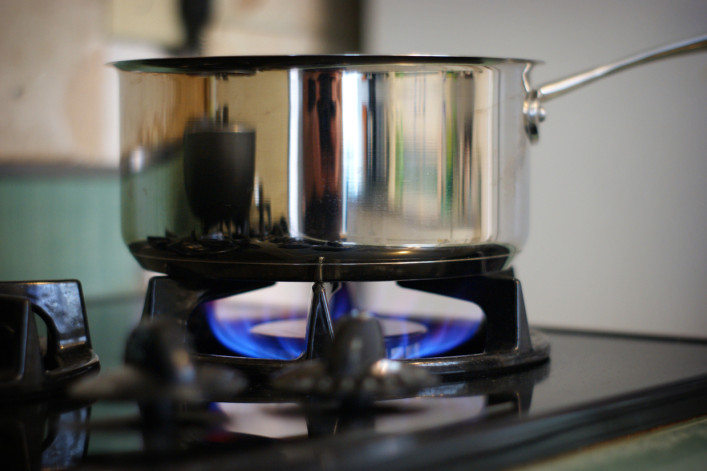Do I still have to pay a gas connection fee if I switch to an electric cooktop?
- Ending gas service would depend on what your building uses for heat and hot water and the terms of your lease

Since you want to make the switch to an electric cooktop for health reasons, you’re probably aware gas ranges contribute to indoor pollution.
iStock
I want to terminate gas service to my New York City rental apartment and install an electric induction cooktop. I’m concerned that my landlord will continue to be charged by National Grid for the gas connection and pass the fee onto me. How do I cut off service while making sure I avoid this cost?
Terminating gas service can involve considerations other than your cooking appliance, but depending on what your building uses for heat and hot water, and what your lease says, you may be able to end your gas service with a phone call. Still, you’ll need the landlord’s permission to install the induction cooktop, our experts said.
Since you’re making the switch to an electric cooktop for health reasons, you’re probably aware gas ranges create indoor pollution by releasing nitrogen dioxide and carbon monoxide at levels roughly the equivalent of keeping a cow in your kitchen—plus unsafe levels of fine particulate matter.
Going electric is the future for new construction with New York City and New York State bans on gas stoves in new buildings. And there are incentives other than protecting your health: Under the city’s Local Law 97, which aims to curb harmful building emissions, buildings that exceed emissions limits or fail to report the building's energy use face fines starting in 2025.
Are your utilities covered by your rent?
Because you are doing this as a tenant, instead of an owner, you have a different set of considerations, such as whether your building uses gas for heat and hot water, and how you pay for utilities—are they included in your rent, or do you pay for them yourself? (If you’re not sure—check your lease and discuss with your landlord or building management—some rental buildings do include utilities with the rent, and some do not.)
It’s conceivable if you pay for utilities separate from your rent and you don’t require gas for heating or hot water, you can terminate service by notifying the utility.
According to a National Grid spokesperson, “[for] an individual customer who requests gas be discontinued from an account they are named on, we would disconnect service and that is the end of the matter from a National Grid standpoint.”
Sources contacted by Brick did not indicate a connection fee (about $20-$30 a month) would still be in effect for the landlord, and therefore something that could be passed along to you. A spokesperson for the Department of Public Service said, “If the tenant lives in a building with multiple residential gas customers and voluntarily disconnects service to just their unit, this likely would not affect the landlord.”
But swapping appliances would require the landlord’s sign off.
As attorney David Hershey Webb, partner at Himmelstein McConnell Gribben & Joseph, said, “I’ve never seen a residential lease that didn’t require a tenant to get the written permission of the landlord to replace an appliance like a stove.”
Trouble at home? Get your NYC apartment-dweller questions answered by an expert! Send us your questions at experts@brickunderground.com. For more Ask an Expert questions and answers, click here.

























